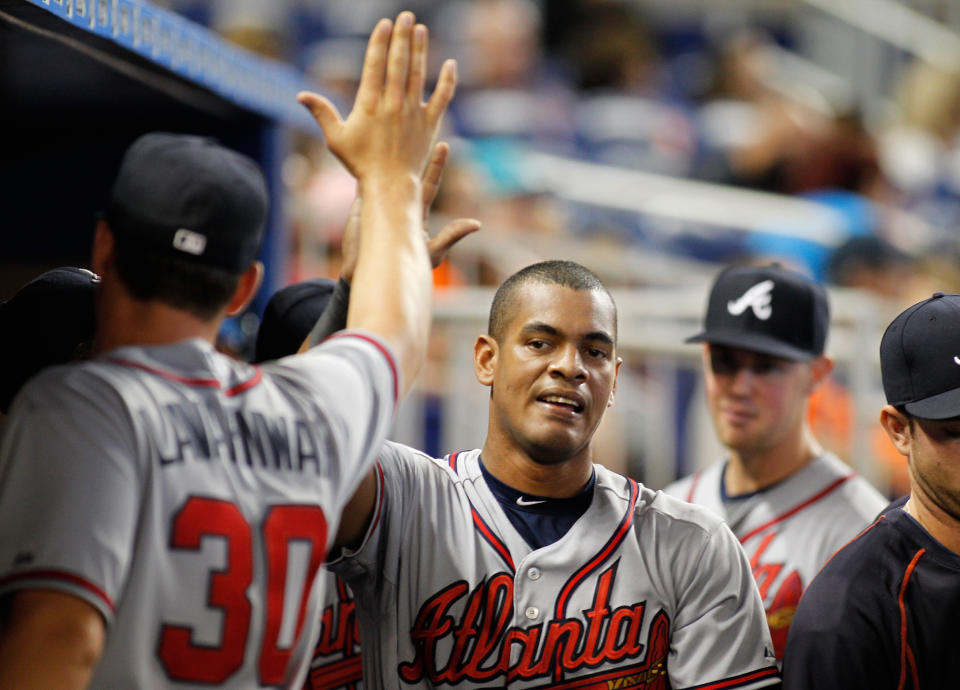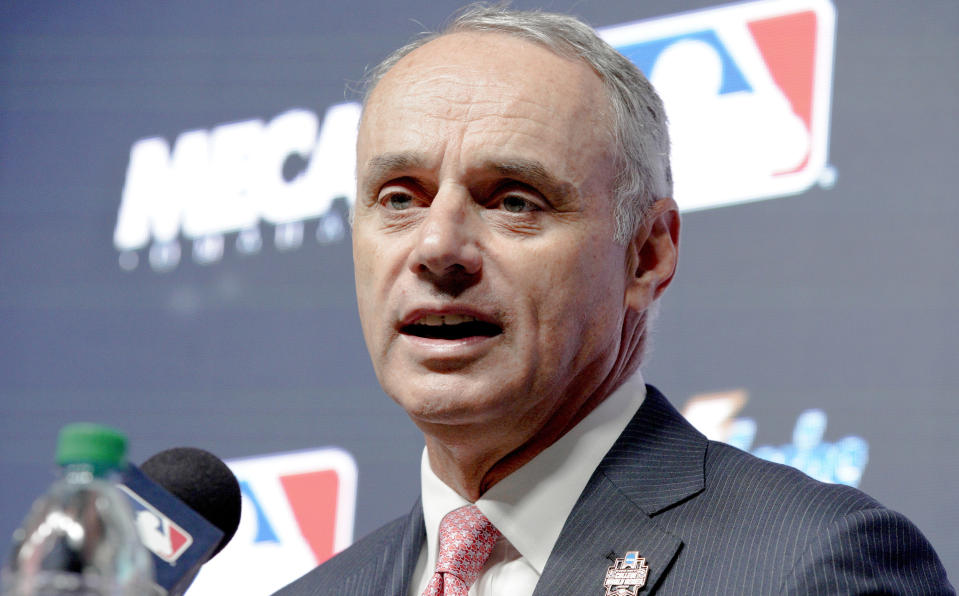Sources: A federal grand jury is investigating MLB's international dealings, and officials on all sides are worried

The plundering of Latin America wasn’t Major League Baseball’s original sin. It’s simply the one that has festered the longest. Corruption of all kinds – illicit payoffs, bonus-money skimming, doping teenagers with performance-enhancing drugs – has been treated as the cost of doing business. And the fallout may finally strike the game with the sort of consequences that for decades have seemed inevitable.
A federal grand jury is looking into Major League Baseball teams’ international dealings and has issued subpoenas to club officials and other personnel involved in the transactions, three sources familiar with the probe told Yahoo Sports. Agents from the FBI have spearheaded the investigation, according to sources familiar with it, and lawyers from the Department of Justice who specialize in Foreign Corrupt Practices Act cases – which typically involve bribery of foreign officials – are involved as well.
While the target of the inquiry could not be confirmed by Yahoo Sports, sources said investigators have subpoenaed at least one former Atlanta Braves official as well as people involved with the signing of Cuban star Hector Olivera, who agreed to a deal with the Los Angeles Dodgers before being traded to the Braves. Multiple witnesses have agreed to cooperate with the investigation, according to sources.
Just how deep the case goes is unclear. MLB’s business in Latin America is expansive. All 30 teams have academies in the Dominican Republic and regularly scout players from Venezuela. They spend well over $100 million a year on international amateur talent. Most of the players are 16 years old and have trained since before they were teenagers in hopes of fetching large signing bonuses on July 2, the first day of the international signing period.
The potential threads to investigate are almost limitless. Front-office officials have been sent to prison for schemes in which they skimmed money from signing bonuses. An agent last year was convicted for smuggling Cuban players, which has happened regularly over the last decade and went unregulated by the league. Other agents are alleged to have paid players to steal them as clients from competitors, an issue that directly affects the MLB Players Association.
MLB’s tacit acknowledgement of the issues in Latin America have come through both penalty and action. In November, the league banned for life former Atlanta Braves general manager John Coppolella after its investigation revealed the team had run afoul of international signing rules. A year earlier, the Boston Red Sox were penalized for similar – though less severe – infractions. In 2010, MLB suspended A.J. Preller – now the GM of the San Diego Padres, then head of the Texas Rangers’ Latin American operations – for illicit negotiation with a player. The league last year hired a forensic accountant to look through teams’ books and ferret out illegitimate business in Latin America, according to two sources, one step among a handful MLB hopes to use as it tries to change the culture.
The league has redoubled efforts to prioritize change in Latin America, starting with the Trainer Partnership Program, which will attempt to incentivize the buscones – trainers who spend years cultivating young talent – to end the pervasive use of PEDs on young teenage boys. The desire to foster a stronger relationship has been productive, according to two trainers who this week said the presence of MLB deputy commissioner Dan Halem at an event in the D.R. last week left a strong impression and belief that a relationship with the league could be more productive than with the MLBPA, which traditionally represents the buscones in labor negotiations.

MLB’s culpability in the larger scheme of how teams operate in Latin America is a vexing question – and one commissioner Rob Manfred will have to answer. What did the league know about Olivera? MLBPA executive director Tony Clark will be pressed similarly: Was Olivera’s representation aware of anything? Officials from the league, MLBPA, Dodgers and Braves declined comment. Olivera’s agent, Greg Genske, did not return messages seeking comment.
Of course, Olivera is just one player. One investigative possibility. One $62.5 million bust with 108 career plate appearances and an 82-game suspension for a domestic incident that later sent him to jail for 10 days. The scope of the probe could go so much deeper, so much wider. It is potentially, for people in Latin America who have long felt taken advantage of by baseball, an overdue comeuppance.
And as MLB enters the final weekend of its regular season, with the National League a wide-open frenzy and the American League primed for a fascinating postseason, the grand jury is a reminder that the business of baseball is ever vulnerable. The Braves, in the midst of a magic season that led them to an NL East championship, aren’t entirely rid of their past misdeeds. Other organizations that have taken liberties in Latin America have a right to be fearful if the scope of the investigation is as wide as it could be.
The league and the union, meanwhile, can only hope that their treatment of the issues in Latin America as the cost of doing business don’t fall back on them. A federal grand jury is serious. The Department of Justice’s involvement has top officials on both sides spooked. Where it’s going they don’t know. In a business as opaque as baseball in Latin America – a business the powers that be on both sides created – it’s only fitting.
More from Yahoo Sports:
• Panthers sign S Eric Reid, longtime Kap ally
• Ex-NBAer Chris Dudley defends former classmate Brett Kavanaugh
• Ohio State gets blasted for posting ‘Silence’ graphic on Twitter
• Rick Reilly confounds Justin Thomas with awkward Ryder Cup question

